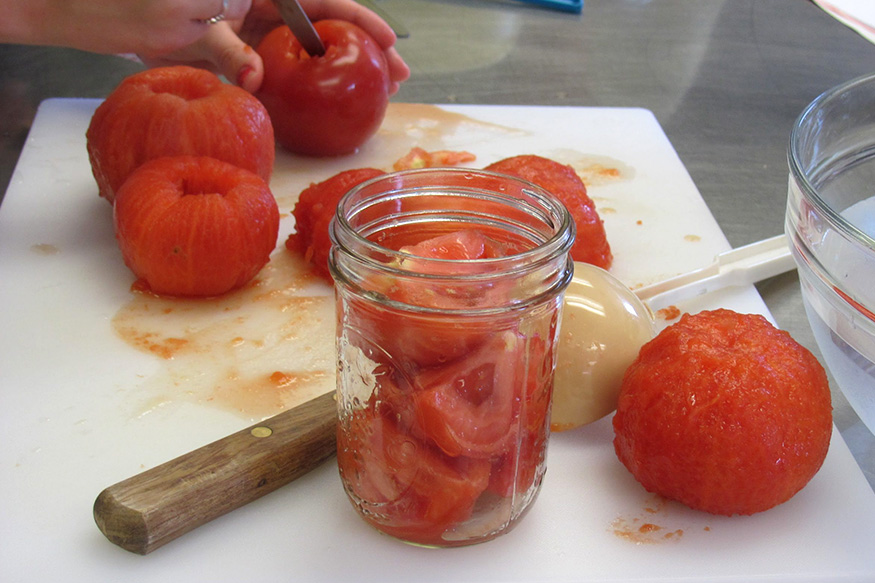Home food preservation increases in popularity every year. There are many benefits, including using all the fruits and vegetables you produce in your garden, and lowering the amount spent at the grocery store, among other benefits. Food safety is paramount in any home food preservation practice.
How do I can or preserve my fruits and vegetables?
It is important to learn and follow safe home food preservation methods. There are risks to almost every method, but canning, pickling, and fermentation carry some specific risks. We have links to information, methods, and recipes from sources that are based on science and have a reputation for researching recipes and methods to insure that they are safe for the home food preserver.
You may have some old favorite recipes that have been passed down over the generations. While some may be perfectly safe (particularly those for jams, jellies, and preserves), others may pose a greater health risk. By sticking to the methods and recipes, you will be less likely to waste precious ingredients or make someone sick.
Keep in mind that your home preserved foods will likely not have the attributes of commercially preserved products. Sometimes that is good—jams and jellies taste fresher—and sometimes it is not—we do not have the ability to blast freeze our fruits and vegetables at home, so the quality cannot match what you buy from the grocery store freezer. It is important to have realistic expectations about home food preservation.
To be placed on the Home Food Preservation email list, send a request to: indu.upadhyaya@uconn.edu
